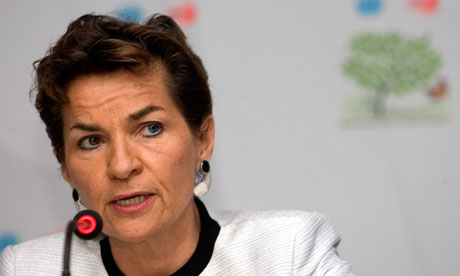Almost 80 per cent of citizens across the globe are very concerned about the impacts of climate change, but close to 70 per cent also see action to combat it as an opportunity to improve their quality of life.

These are among the findings of the largest ever citizen consultation on climate change carried out by the more than 100 partners of the World Wide Views Alliance in the run up to the UN Climate Change Conference in Paris
7 (COP 21), taking place this December.
The debate and citizen consultation, conducted on a single day in 75 countries starting in Fiji in the Pacific and ending in Arizona in the United States, involved 10,000 people carefully selected for being demographically representative of their countries. Well over 90 per cent said the new universal agreement to be inked in Paris should have a long term goal of zero emissions at the end of the century.
* 67 per cent say this should be legally binding for all countries with 17 per cent saying it should be only a legal requirement for developed and hemerging nations. Ten per cent said the long term goal should be voluntary.
The debate among citizens also found strong support for action by their owcountry even if others do not act.
* Asked “should your country take measures to reduce its greenhouse gas emissions?” 79 per cent said yes, even if many other countries do not take measures.
Education and Protecting Tropical Forests Cited as Big Wins for Cutting Carbon Pollution
* Questioned as to which instruments they thought most relevant to reducing the level of greenhouse gas emissions, 77 per cent chose education” programmes on climate for a broader public.
* Action to protect tropical forests was the second most popular action for cutting greenhouse gas emissions.
The debate and citizen consultation, which took place on 6 June, was a collaborative endeavor involving the secretariat of the United Nations Convention on Climate Change (UNFCCC), Missions Publiques, the French
National Commission for Public Debate (CNDP) and the Danish Board of Technology Foundation.
Participants were provided with information about climate change and the different views under negotiation for COP 21 before the event began.
Christiana Figueres, Executive Secretary of the UNFCCC, said: “We were delighted to co-initiate this debate and citizen consultation and bring the voice of the ordinary woman and man into the climate negotiations.”
“Many cities, companies and NGOs are voicing their support for a transformational agreement in Paris. The view of citizens is also crystal clear – they see the threats and they see the opportunities: the vast majority want action now, and they want action that is sustained over the long term to bend the emissions down to zero by the end of the century along with support for developing countries for their efforts,” she said.
* Asked if high-income countries should pay more than the already agreed $100 billion annually by 2020 for mitigation and adaptation in low-income countries, 78 per cent said yes.
Among the many other findings are:
* There is no difference between the so called North and South. Climate change impacts are a source of threat and concern for the large majority of people consulted both in developed and developing countries.
* Another big issue in the negotiations is that of differentiated responsibilities of each country. Citizens were asked: What would be the best basis for setting the ambition of national climate contributions?
* 21 per cent said historical emissions; 39 per cent said current or anticipated emissions and 32 per cent said current or future economic capabilities.
* The vast majority of citizens said the private sector has an important role in contributing to climate action, with 85 per cent agreeing, 53 per cent saying the private sector must contribute half or more and 32 per cent saying it has to contribute, but in a small part.
The project is coordinated by the Danish Board of Technology Foundation, in collaboration with Missions Publiques and the French National Commission for Public Debate. It is co-initiated by the UNFCCC secretariat and implemented by partners in the World Wide Views Alliance, with support from the French Ministry of Foreign Affairs and International Development and the French Ministry of Ecology, Sustainable Development and Energy as COP 21 host.
